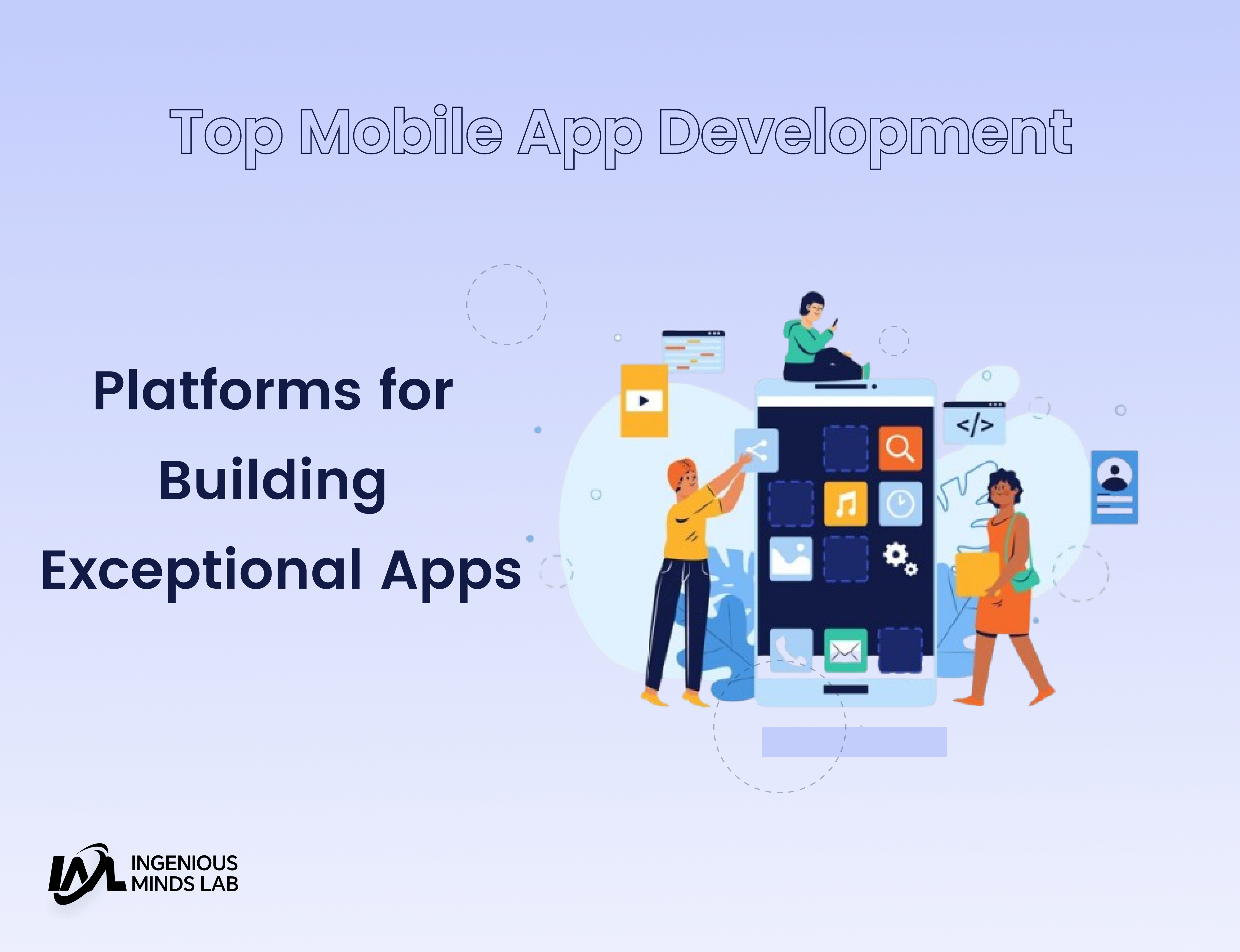Introduction: In today’s tech-driven world, selecting the right mobile app development platform is crucial for building successful mobile applications. Whether you are a startup or an established business, choosing the best mobile app development platform helps in building high-quality, scalable, and efficient apps that stand out in the competitive market.
This article dives into the mobile app development platforms that are leading the industry, helping developers create top-notch applications for iOS and Android. From Flutter to React Native, we’ll explore the best options available for building mobile apps that perform well across various devices and operating systems.
1. Flutter: A Leading Mobile App Development Platform
Flutter, developed by Google, is one of the best mobile app development platforms for creating cross-platform apps. It allows developers to write code once and deploy it on both iOS and Android, making it one of the most efficient frameworks.
Why Choose Flutter?
- Cross-platform compatibility: With Flutter, you can use a single codebase to target multiple platforms.
- Great developer tools: Features like Hot Reload make it easier for developers to iterate and test applications rapidly.
- Rich widget library: Flutter provides customizable widgets to help you create a native-like experience for your apps.
Best For: Developers looking for a highly customizable and efficient mobile app development platform.
2. React Native: A Powerful Mobile App Development Framework
React Native, built by Facebook, is another popular mobile app development platform that allows you to build cross-platform mobile apps. Using JavaScript and React, developers can create apps that run seamlessly on both iOS and Android, ensuring high performance.
Why Choose React Native?
- Code reuse: React Native allows you to reuse most of the code across both platforms, saving development time.
- Native performance: The platform offers near-native performance, making it suitable for high-performance apps.
- Strong community: With a large number of developers and libraries, React Native remains one of the best mobile app development platforms available.
Best For: JavaScript developers aiming to build efficient and scalable mobile apps.
3. Xamarin: Microsoft’s Mobile App Development Platform
Xamarin is a mobile app development platform owned by Microsoft, which allows you to build cross-platform mobile apps using C# and .NET. Xamarin’s strength lies in its ability to target multiple platforms with a single codebase while providing a native user experience.
Why Choose Xamarin?
- Unified codebase: Write C# code once and deploy to iOS, Android, and Windows.
- Native performance: Xamarin compiles to native code for high-performance applications.
- Microsoft ecosystem integration: Xamarin integrates well with other Microsoft services like Azure.
Best For: Developers working in the Microsoft ecosystem or using C# for development.
4. Swift: The Go-To for iOS Development
For developers focusing exclusively on iOS, Swift is the premier mobile app development platform. Developed by Apple, Swift offers an intuitive syntax and powerful features for building fast and efficient iOS apps.
Why Swift?
- Optimized for iOS: Native apps that take full advantage of Apple’s ecosystem.
- Performance: Swift compiles code into native machine code, offering exceptional performance.
- Modern language: Swift’s syntax is easy to learn and write, making development faster.
Best For: Developers targeting iOS users, especially those who want to leverage the latest Apple technologies.
5. Kotlin: The Android Development Leader
Kotlin is the official language for Android app development, replacing Java in many Android projects. It is a modern, concise, and expressive programming language that is fully interoperable with Java.
Why Kotlin?
- Simplified syntax: Kotlin’s syntax reduces boilerplate code, making development faster and easier.
- Interoperability with Java: Developers can integrate Kotlin into existing Java-based Android apps.
- Improved performance: Kotlin is designed to work seamlessly with Android’s core system.
Best For: Android developers who want to use a modern language that simplifies development while maintaining performance.
6. Appcelerator Titanium: A Robust Platform for Hybrid Apps
Appcelerator Titanium is a well-established mobile app development platform for building native-like mobile apps using JavaScript. It allows developers to create hybrid apps that run across iOS and Android with a single codebase.
Why Appcelerator Titanium?
- Native UI components: Titanium provides a rich set of native UI components for building high-performance apps.
- Cross-platform support: Build apps for Android, iOS, and Windows from a single codebase.
- Extensive API support: Access a wide range of device features, such as GPS, camera, and accelerometer.
Best For: Developers looking for a hybrid app development solution with a focus on native performance.
7. Ionic: The Hybrid App Leader
Ionic is an open-source mobile app development platform that allows developers to build hybrid mobile apps using HTML, CSS, and JavaScript. It offers a library of pre-built UI components and tools for creating mobile apps with a native feel.
Why Ionic?
- Cross-platform development: Build apps for iOS, Android, and the web from a single codebase.
- UI components: Pre-built components that mimic native iOS and Android designs.
- Web-first approach: Easily create progressive web apps (PWAs) in addition to mobile apps.
Best For: Web developers looking to create hybrid apps using web technologies.
8. PhoneGap: The Simple Hybrid App Framework
PhoneGap, originally developed by Adobe, is another mobile App Development Platform for creating hybrid apps using HTML, CSS, and JavaScript. It allows developers to build mobile applications that can be deployed on iOS, Android, and other platforms using web technologies.
Why PhoneGap?
- Easy to use: Simple framework for developers familiar with web technologies.
- Cross-platform support: Build once and deploy across multiple platforms.
- Large plugin ecosystem: Access a variety of plugins to extend app functionality.
Best For: Developers seeking a straightforward way to create hybrid apps using familiar web technologies.
Conclusion
Choosing the right mobile app development platform is crucial to the success of your app. Whether you need a cross-platform solution like Flutter or React Native, or a platform-specific approach like Swift or Kotlin, the tools mentioned in this article will help you build top-notch, high-performance apps.
Consider factors such as project requirements, team expertise, and app complexity when selecting the platform that best fits your needs. With the right tools and technologies, your app can stand out in the competitive mobile app market.

